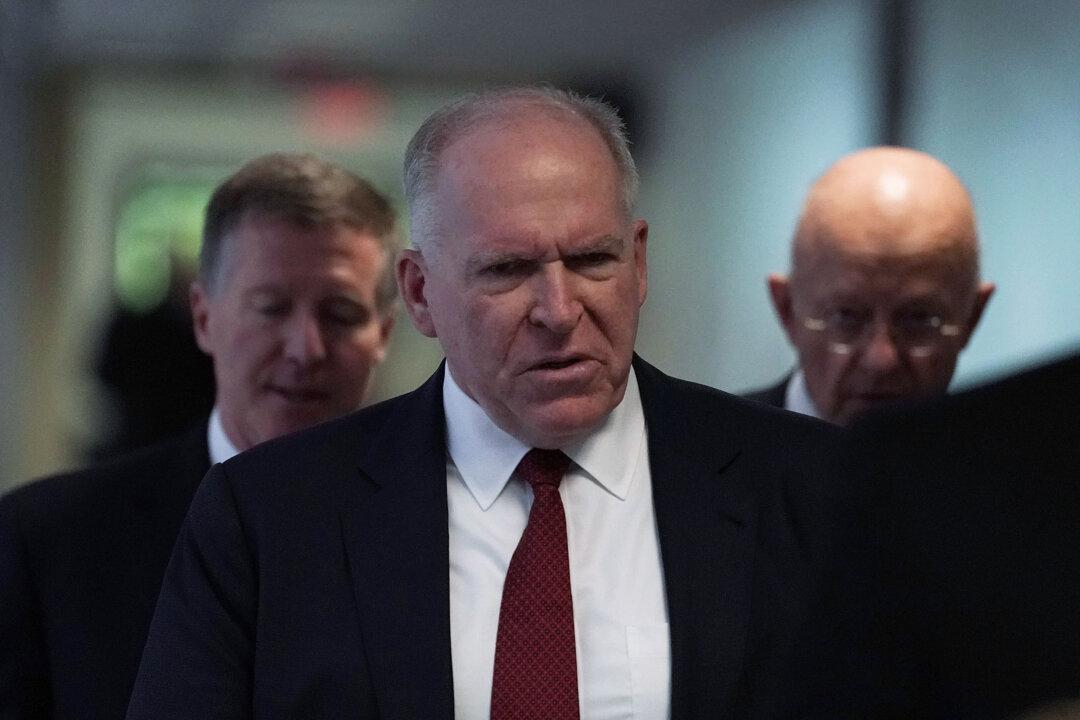President Barack Obama’s White House kept three key officials in the dark about bombshell Russia intelligence received in early August 2016 from CIA Director John Brennan until after the presidential election in November of that year.
The three officials held the top roles focusing on Russia, cybersecurity, and intelligence programs at the National Security Council. Their exclusion is likely to raise new questions about the Obama administration’s involvement in the origins of the investigation of the Trump campaign that evolved into the probe by special counsel Robert Mueller.





